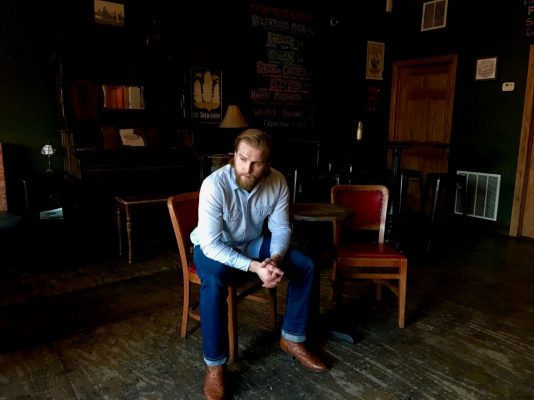
Photo by Ashley Stottlemeyer
West Virginia is far more than meets the eye. A native of Morgantown, singer-songwriter Charles Wesley Godwin paints a rich and honest portrayal of his homeland and its people with his debut album. Seneca is a moving snapshot of his 26 years of life and well-soiled roots in the Appalachian hills, a backdrop that has given birth to some of the most intelligent and hard-working people in the country.
When you partake in his gripping storytelling, it comes as no surprise that Godwin’s shared bills with the likes of Shooter Jennings, Tyler Childers, Colter Wall, Luke Combs, Aaron Watson, David Allan Coe, Sundy Best, Waymore’s Outlaws and Nicholas Jamerson. Godwin is truly at home on stage and alongside like-minded musicians who go against the grain and shake up the status quo.
Please tell us a bit about yourself. Where are you from and how did you get started in music? Any defining moments along the path to present day?
I’m from Morgantown, West Virginia, the land of “Country Roads”. I got started in music after I failed to make the West Virginia University football team. Afterwards, I had a lot of free time on my hands that I’d never had in my life up to that point. I wanted to think of some way to put that extra time and effort into something productive. I ended up deciding to get a guitar and start learning to play.
About a year later, while I was studying abroad in Estonia, my roommates started coming into my room to hear me practice. There was a show in town (Tartu) one night and I went with some buddies. We were watching the show, clapping, drinking and having a ol’ time. Then, lo and behold at the end, one of my roommates runs up on stage with my guitar. He’d snuck it out of our flat after I’d left. Apparently planning to get me to play. If I remember it right, security guys were around the stage thinking about whether or not to lead him off when the promoter/manager/sound guy (someone along those lines) gave the OK for me to play a few. I was nervous as all hell; I did not want to do it, but I did not want to sis out. I believe I figured if I didn’t do it, then I’d be a party-pooper and kill the energy in the room. So I went on up and played one or two cover songs that I knew at the time. It seemed like everybody enjoyed it and that I didn’t embarrass myself.
That next Monday, I got a message from a fashion designer in town named Helen. She asked if I would play music for her fashion show that Friday. She offered me something like 150 Euros and I accepted. I showed up, stumbled through some songs and the rest was history. I thought playing music out for people was the greatest thing ever. I’d say that whole sequence of events was the turning point in my life. If I had accomplished my “dream” of playing a little bit of football for WVU, I would have never started playing music. I would have never found that one thing that I actually have a little bit of talent for.
[embedyt] https://www.youtube.com/watch?v=J5mtaoVnmGM[/embedyt]
As an artist, how do you define success?
What it means to be successful to me personally, is like a pizza or pie with many slices. Just speaking for me, I don’t think that I can break it down to just one thing. In order for me to feel successful someday I’ll need to accomplish a few important things. Earning the respect of my peers, to support/pull my weight for my family financially and to write a song that will live on beyond my lifetime impacting people’s lives. In my eyes, those are pretty high standards, but at least I don’t have to worry about resting on my own laurels anytime soon.
What do you find to be your greatest struggle when it comes to the music business?
For me, it’s definitely handling my own booking. It takes me out of that creative frame of mind that I have to be in in order to write. I am absolutely horrible at booking shows and I don’t enjoy all the time spent on the computer doing it. But that’s the way it’ll have to be until maybe someone much better at it, with my own interests in mind, can take the reins.
What do you think is the most realistic goal you can achieve as an artist/band? What do you hope to achieve?
I believe it’s realistic for me to become a middle-class musician someday. I don’t have any delusions about making millions of dollars and playing stadiums, but I do think that I can reach a point that, just about anywhere, a small room of people would want to come listen to me play my songs.
Outside of music, what do you like to do that you feel contributes to the creativity that you tap into for your music?
I think the time that I spend working out, running, hunting, and fishing gives me a clarity of mind that I can’t get any other way. There’s something about getting out on the mountain or running myself to exhaustion that gets the ideas flowing. I’m usually able to sit down with my notebook and put down some pretty solid lines after doing one of those things.
Words by: Jonathan Frahm (@jfrahm_)
Photo by: Ashley Stottlemeyer
